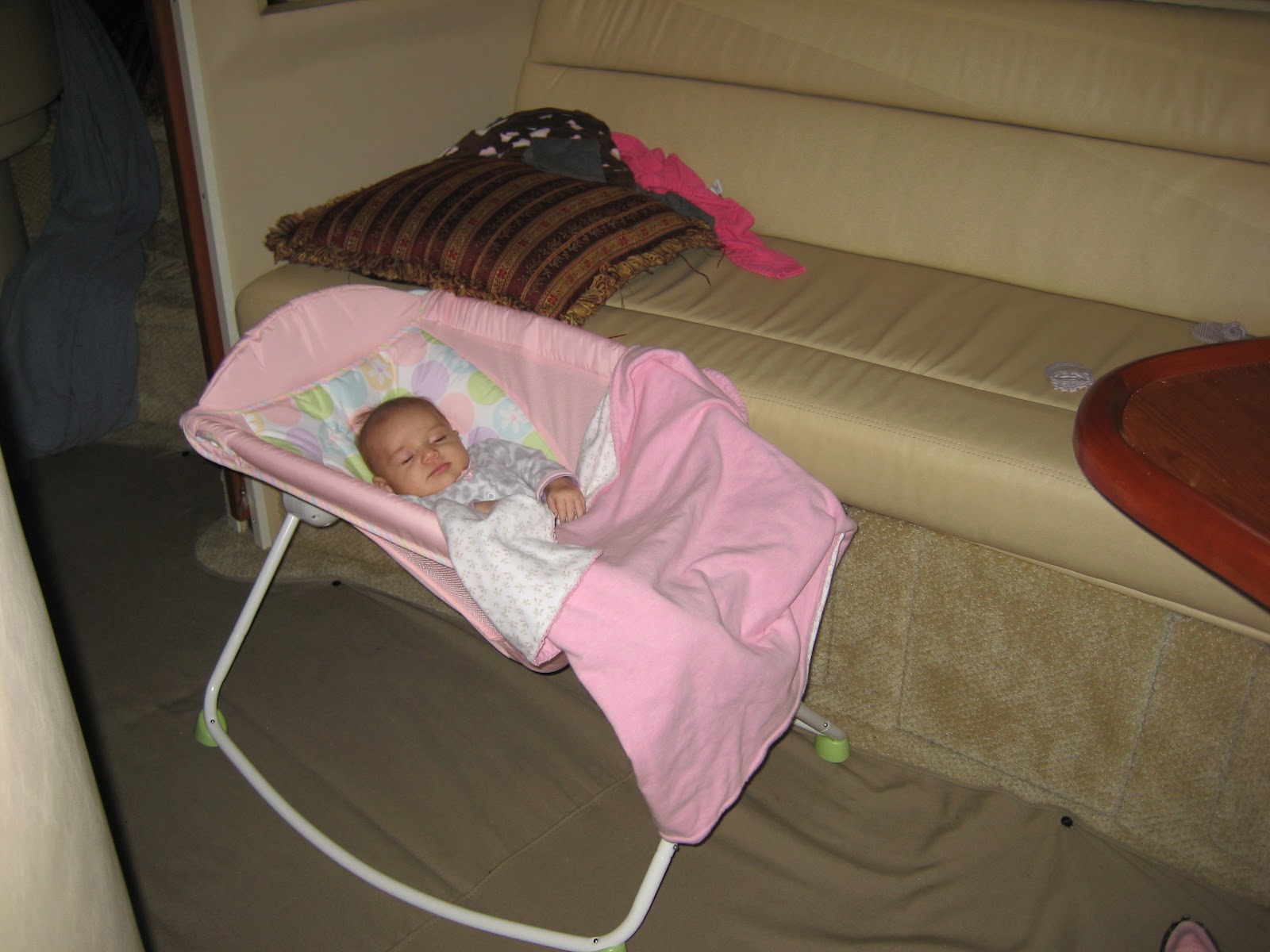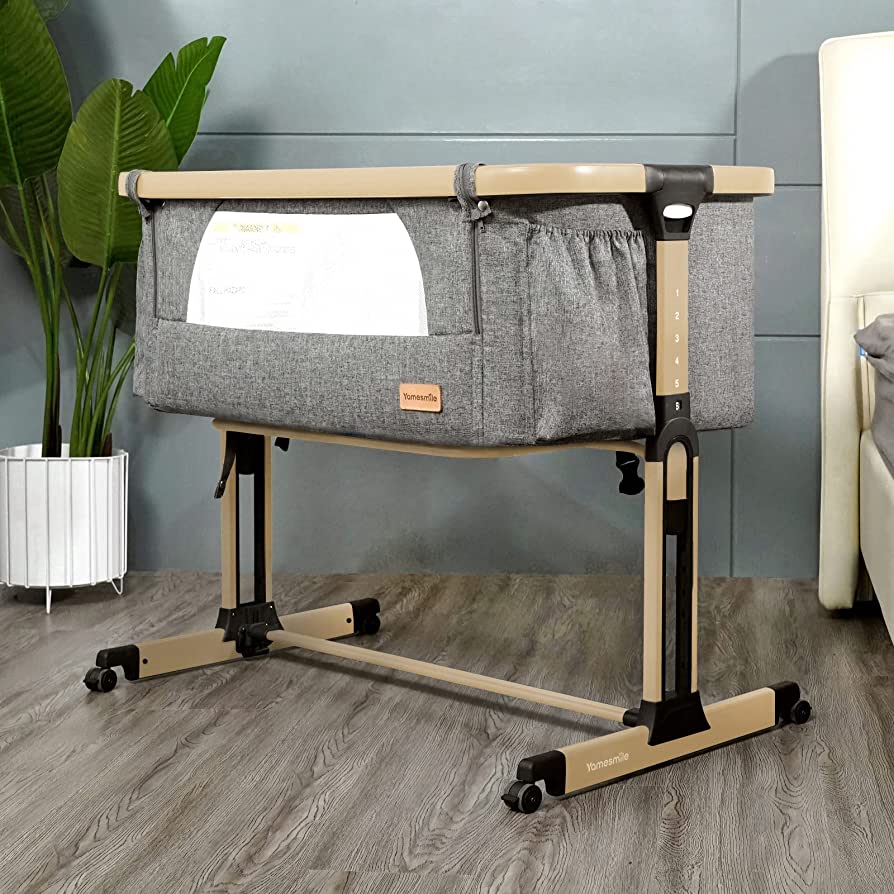Inclined Infant Sleeper Travel Bed
An inclined infant sleeper travel bed is a portable sleeping option for babies and toddlers. It is typically composed of an inner mattress with an adjustable incline, which helps to prevent acid reflux, regurgitation and flat head syndrome in infants. The bed also features mesh or fabric sides, as well as straps or clips that can be used to secure the baby inside the bed when traveling.
Some models also come with additional features such as lockable wheels for easy transportability and storage pockets for diapers, wipes and other necessities. Inclined infant sleeper travel beds are perfect for vacations, day trips or overnight stays away from home.
The Inclined Infant Sleeper Travel Bed is the perfect travel companion for parents on-the-go. This lightweight, portable bed provides optimal comfort and support for your baby while keeping them at a safe incline that helps reduce spit up, acid reflux and congestion. The breathable mesh sides promote air circulation to keep your little one cool, and the included carrying bag makes it easy to take anywhere you go!
With its adjustable height settings and removable mattress pad, this sleeper is designed with both convenience and safety in mind – making it an essential item for any family’s travels.
Incline Sleeper for Baby With Reflux
Incline sleepers for babies with reflux can be a great way to help reduce the discomfort and symptoms of acid reflux. These inclined sleepers are designed to keep your baby’s head elevated above their stomach, which helps reduce the amount of stomach acids that travel back up into their esophagus and cause pain or discomfort. Inclined sleepers also provide extra support for your baby’s neck and spine while they are sleeping, helping them get more restful nights of slumber.
Inclined Baby Sleeper Ban
In April 2019, the U.S. Consumer Product Safety Commission (CPSC) issued a ban on inclined sleepers for infants due to an increased risk of suffocation and strangulation associated with their use. The ban includes all models of inclined baby sleepers manufactured after January 1, 2020, as well as those already in stores or being used by consumers prior to that date. All manufacturers must recall any existing products from store shelves and stop selling these devices in order to comply with this new rule.
Parents should take note of this ruling and ensure they are using safe sleeping practices for their babies at all times.
Baby Incline Sleeper Recall
In the summer of 2019, Fisher-Price issued a voluntary recall for their popular baby incline sleeper due to reports of infant fatalities. The recall urged parents to immediately stop using the product and contact Fisher-Price for a full refund or voucher. It is important that all parents are aware of this recall and take necessary steps to protect their infants from any potential danger.
Why are Inclined Sleepers Dangerous
Inclined sleepers have recently come under scrutiny for their potential danger to infants. These products are designed to provide babies with a more inclined sleeping surface, which may interfere with the baby’s ability to maintain an open airway and can increase the risk of suffocation or strangulation. The American Academy of Pediatrics advises that infants not be placed in any product that requires restraining straps as this could lead to entrapment and suffocation.
For these reasons, it is important for parents and caregivers to avoid using inclined sleepers when caring for their infant.
Tilted Bassinet for Reflux
Tilted bassinets for reflux are becoming an increasingly popular option for parents of babies suffering from acid reflux. These bassinets typically come with an adjustable incline, allowing you to elevate the head of your baby’s bed in order to reduce their symptoms. Studies have found that this type of design can provide much needed relief from the discomfort associated with acid reflux and give both parent and baby a better night’s sleep!
Bassinet Incline Wedge
A bassinet incline wedge is a great way to help infants sleep safely and comfortably. It provides the necessary elevation to keep baby’s head, neck and back in proper alignment while sleeping, helping to reduce the risks of Sudden Infant Death Syndrome (SIDS). The wedge also helps relieve common discomforts such as reflux, congestion, and acid indigestion.
Bassinet incline wedges are made from soft foam that contours to fit your baby’s body for extra comfort. They can be easily placed inside most standard-sized bassinets or cradles for added convenience.

Credit: www.myboatlife.com
Are Incline Sleepers Safe for Babies?
Incline sleepers are a popular choice for parents looking to keep their baby safe and comfortable during sleep. While these products can provide some benefits, there is still an ongoing debate about whether or not they should be used as a part of your infant’s regular sleeping arrangements. Incline sleepers are designed with the intention of elevating your baby’s head in order to reduce the risk of choking, suffocation, and other health risks associated with flat-head syndrome.
However, some experts argue that the incline position puts too much strain on your child’s neck muscles and spine which could lead to long-term damage if used improperly or without caution. It is important to note that infants should always be placed on their back when sleeping; using an incline sleeper may increase the chances of rolling over onto their stomach while asleep leading to suffocation risks. Additionally, most medical professionals recommend against any extra padding being added into the crib such as pillows or blankets since this can also pose significant safety concerns for infants who cannot move around freely within it yet due to lack of mobility.
Ultimately, it is up to you as a parent to decide what type of sleep environment works best for your little one but make sure you think carefully before investing in an incline sleeper so that you can ensure your baby remains safe at all times when resting!
Why are Inclined Sleepers Recalled?
Inclined sleepers are a type of sleeper device that is designed to help babies sleep more comfortably and safely. Recently, however, there have been several recalls on these devices due to concerns about the potential for an infant’s head to become entrapped in them. In fact, since 2005, there have been multiple reports of infants dying while using inclined sleepers.
These tragic incidents prompted the Consumer Product Safety Commission (CPSC) and other safety organizations to issue warnings and recall notices on various models of inclined sleepers. The main reasons behind the recalls include: unsafe design features such as straps or components that can cause an infant’s head or body parts to become trapped; inadequate instructions/warnings regarding how parents should use them; lack of testing done by manufacturers prior to sale; and misleading advertising claims made about their safety. Ultimately, it is important for all parents who own one of these products to take steps immediately if they have not already done so and remove any recalled items from their home environment before tragedy strikes again.
Should Reflux Babies Sleep on Incline?
When it comes to the question of whether reflux babies should sleep on an incline, there is no one-size-fits-all answer. For some babies with reflux, sleeping at a slight incline can help reduce symptoms such as spitting up and discomfort. However, this isn’t always the case, and parents should consult with their pediatrician before making any changes to their baby’s sleeping position or routine.
Sleeping in an inclined position may be beneficial if your baby has been diagnosed with GERD (Gastroesophageal Reflux Disease) since this can help stomach contents stay down instead of being brought back up into the esophagus which causes pain and other complications. Alternately, for infants who suffer from positional reflux – meaning that they experience more frequent episodes when lying flat – using an inclined sleeper or swaddling them upright may also provide relief from symptoms. Ultimately though, each individual situation varies so it’s best to get advice from your doctor about what will work best for your child before taking any action.
Is It Ok to Elevate Baby’S Head While Sleeping?
It is important to consider if elevating a baby’s head while sleeping is safe or not. Elevating the head of an infant during sleep could cause airway obstruction, which can lead to breathing difficulties, increased risk for SIDS (Sudden Infant Death Syndrome), and other health issues. Babies should always be placed on their backs in order to reduce the risk of SIDS and ensure proper air circulation.
The American Academy of Pediatrics recommends that babies should never be placed on their stomachs or sides while sleeping due to the risks associated with suffocation. If parents wish to elevate their baby’s head while they are asleep, they should use a firm mattress with no extra padding such as pillows or stuffed animals under the crib mattress. Furthermore, placing loose blankets close by can help provide extra support for an infant’s neck and back when laying in a supine position.
It is best practice that all items within reach around the crib like toys and books are kept away from babies at all times when unsupervised in order to prevent any potential choking hazards. Ultimately, it is up to parents whether or not they want to elevate their baby’s head when sleeping since there are both pros and cons; however it may be wise for them to speak with a pediatrician before making this decision as safety should always come first!
Baby Sleep Strategies to Avoid SIDS!
Conclusion
The Inclined Infant Sleeper Travel Bed is the perfect solution for parents who are looking for a safe and comfortable way to sleep their baby while on-the-go. The adjustable incline of this bed helps to alleviate congestion, spit up, and acid reflux while also providing a cozy place for your little one to snooze. With its lightweight design and easy setup, it’s great for any kind of travel – be it by plane, train or car!
Not only that but with its affordable price tag and multiple color options available, this inclined infant sleeper makes an ideal purchase no matter the occasion.

